Read more of this story at Slashdot.
Shared posts
Twitter Releases National Security Letters
New Rules on Data Privacy for Non-US Citizens
Last week, President Trump signed an executive order affecting the privacy rights of non-US citizens with respect to data residing in the US.
Here's the relevant text:
Privacy Act. Agencies shall, to the extent consistent with applicable law, ensure that their privacy policies exclude persons who are not United States citizens or lawful permanent residents from the protections of the Privacy Act regarding personally identifiable information.
At issue is the EU-US Privacy Shield, which is the voluntary agreement among the US government, US companies, and the EU that makes it possible for US companies to store Europeans' data without having to follow all EU privacy requirements.
Interpretations of what this means are all over the place: from extremely serious, to more measured, to don't worry and we still have PPD-28.
This is clearly still in flux. And, like pretty much everything so far in the Trump administration, we have no idea where this is headed.
Algorithm allows analysis of compressed data without reconstruction

A researcher from Telecom Bretagne has found that applying a K-means algorithm directly over compressed data allows for analysis with greater efficiency and at a lower coding rate. The research focuses specifically on the types of data collected by sensors and sent for processing at fusion centers – information sharing centers responsible for analysing information...
The article Algorithm allows analysis of compressed data without reconstruction, by Nicky Cappella originally appeared on The Stack.
UK cops beat phone encryption by "mugging" suspect after he unlocked his phone

Detectives from Scotland Yard's cybercrime unit decided the easiest way to get around their suspect's careful use of full-disk encryption and strong passphrases on his Iphone was to trail him until he made a call, then "mug" him by snatching his phone and then tasking an officer to continuously swipe at the screen to keep it from going to sleep, which would reactivate the disk encryption. (more…)
Court says secretly filming nude young girls in bathroom isn’t child porn
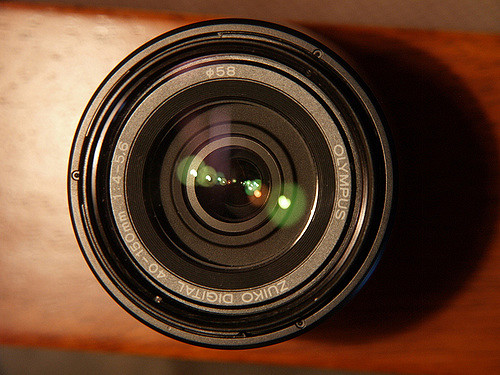
(credit: Pablo Ares Gastesi)
The Tennessee Supreme Court is vacating the child-porn production conviction of a Knoxville man, named Thomas Whited, who secretly filmed his 12-year-old daughter—and 14-year-old friend—showering, going to the bathroom, and undressing. Although the father recorded the bathroom for two months for sexual reasons, the high court vacated his 22-year sentence because what he filmed did not amount to pornography. The girls were not having sex, the high court reasoned (PDF) Monday, and instead the minors were videotaped in the bathroom performing "everyday activities."
Most states define child pornography to some extent on whether it is intended to sexually arouse the viewer, which was the case in the prosecution of Whited, a US Army National Guardsman. However, under Tennessee's child pornography laws, the intent of the viewer or producer of the recorded images doesn't matter. What does matter, however, is the story the images tell.
Tennessee defines child porn as depicting children having sex, simulated "sexual activity," and "lascivious exhibition" of children's private parts. There was no sexual or simulated sexual activity being filmed in the case of Whitfield, and the term "lascivious" is overbroad, the high court reasoned. Because of that vagueness in "lascivious," the court suggested that filming a baby's first bath could be considered child porn:
Randy Moss Catches Fish

Two Monday Night Footballs ago, Randy Moss showed off his kicking skills. This week, he caught a dang salmon with one hand.
Stephen Colbert powerfully addresses nation: 'How did our politics get so poisonous?'

"We are more divided than ever, as a nation," a visibly shaken Stephen Colbert said on the night of the 2016 election, citing one clear fact that resonates around the world.
The results weren't definitive when Colbert concluded his Showtime special Democracy’s Series Finale: Who’s Going To Clean Up This Sh*t?, but the late night host seems to know what's coming as he addressed his audience.
"How did our politics get so poisonous?" he added.
Colbert gets personal in the video, speaking of his family and his mother who passed away before casting the vote she had already assigned to Hillary Clinton. Read more...
More about Showtime, Stephen Colbert, Election 2016, Entertainment, and TvGoogle Security Engineer Claims Android Is Now As Secure As the iPhone
Read more of this story at Slashdot.
With 12K engineers screened, Triplebyte says its skills-based recruiting platform is working
 Triplebyte is offering companies a different way to hire engineers — as co-founder and CEO Harj Taggar put it, the goal is “ignoring the résumé.” Today the company announced that its platform has been used to screen 12,000 engineers. The Triplebyte process starts with an online programming test, followed by a technical interview — the company says it has… Read More
Triplebyte is offering companies a different way to hire engineers — as co-founder and CEO Harj Taggar put it, the goal is “ignoring the résumé.” Today the company announced that its platform has been used to screen 12,000 engineers. The Triplebyte process starts with an online programming test, followed by a technical interview — the company says it has… Read MorePhil Schiller justifies the compromises of the MacBook Pro
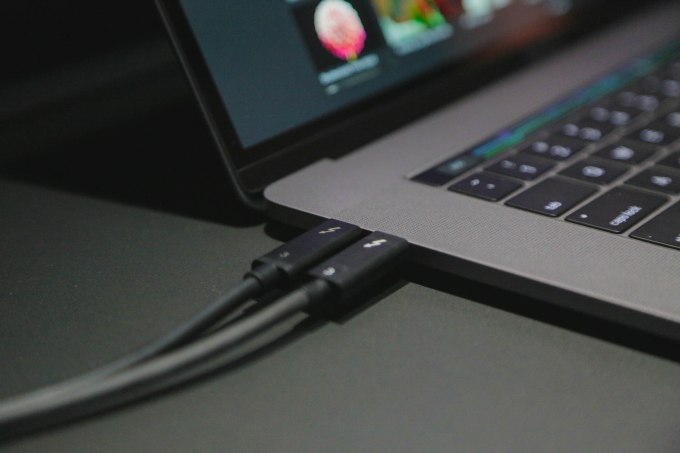 In an interview with The Independent, Apple’s SVP of Worldwide Marketing Phil Schiller looked back at last week’s Apple event and justified some of the decisions behind the new MacBook Pro. Let’s go through the new information in this interview. Schiller is saying that the MacBook Pro is the fastest selling pro laptop from Apple. “And we are proud to tell you that so… Read More
In an interview with The Independent, Apple’s SVP of Worldwide Marketing Phil Schiller looked back at last week’s Apple event and justified some of the decisions behind the new MacBook Pro. Let’s go through the new information in this interview. Schiller is saying that the MacBook Pro is the fastest selling pro laptop from Apple. “And we are proud to tell you that so… Read MoreFact: Melania Trump is a Westworld robot

HBO's Westworld is a reality-bending science fiction epic about technology, human decency and free will.
Having pored over the show's released episodes, I've begun to develop several theories about the Westworld universe. Is the show covering multiple timelines? Is William the Man in Black? Is Melania Trump also a Westworld robot, along with the entire Trump family except for Tiffany?
In my opinion, the answer to all of those questions is yes.
I first began to develop this theory after Melania's speech on Nov. 3, in which she revealed that a large part of her work as first lady would be spent solving the problem of rudeness on social media. Much like Dolores seeing a printed picture of a guest and not reacting to it on Westworld, Melania is unable to take in information that contrasts her reality. Namely, that her husband is, you know, probably the most famous mean person on social media. Read more...
More about 2016 Election, Humor, Melania Trump, Donald Trump, and WatercoolerVictim of tragic Kit Kat theft gets car full of candy bars

It's been a few days since the world got its heart broken by the tragic saga of Hunter Jobbins, a college student who had a Kit Kat rudely stolen right out of his car. But now there's a happy ending for Jobbins and it involves lots of good Kit-Kat karma.
Jobbins shared his story of the theft and the strange note the Kit Kat bandit left in his car, apologizing for stealing the candy bar out of Jobbins' car but promising nothing else was stolen.
But the folks at Hershey, maker of Kit Kats, heard Jobbins' tale of woe and did what they could to make it up to him, sending him 6,500 replacement candy bars and shoving them all into his car. Read more...
More about Candy Bar Thievery, Kit Kats, and WatercoolerThe Bernie Sanders doppelgänger wants you to know he's not Larry David, either

While Bernie Sanders is less prevalent in the news after he lost the Democratic presidential nomination, he's still a major politician involved in the 2016 election. That means there's still enough reason for Sanders' doppelgänger to prove that he is not, in fact, Bernie Sanders.
However, the Sanders look-alike has added a new twist on his classic shirt.
He previously made headlines in June when someone on Reddit posted a photo of the man wearing a customized sweatshirt declaring "I am not Bernie."

Image: reddit/dasbeargod Read more...
The Entire Plot Of The Next Season Of Game Of Thrones Seems To Have Leaked

HBO’s Game Of Thrones, the hit show about sibling fucking, is currently in the process of filming its seventh and kinda-sorta-not-really final full season in Spain. While most of the plot developments of the first six seasons were either matters of public record or relatively simple to discern, author George R.R. Martin’s failure to write the final books in the series on which the show is based means there’s no scaffolding upon which the showrunners can build the plot of Season 7, and no canon sources for fans to follow along with.
Yes, Donald Trump, the FBI Can Vet 650,000 Emails in Eight Days

Donald Trump Jr.'s visit to Michigan State met with student protest

Donald Trump Jr. did not receive the warmest welcome at Michigan State University this Wednesday.
The son of the Republican presidential nominee was scheduled to speak and campaign in the university's Union Ballroom for his father's "pertinent" election, according to the MSU College Republicans' Facebook page. But not every student was pleased.
Opposing students rallied against the speaker's arrival, waving signs that read, "A woman's place is in the oval office," and "Donald Trump Jr. is in there plotting our oppression." Read more...
More about Campaign, Donald Trump Jr., Michigan State, Michigan, and ProtestorsAmid illnesses, Soylent halts powder sales and zeroes in on bad ingredients
JvitakMmm, people.
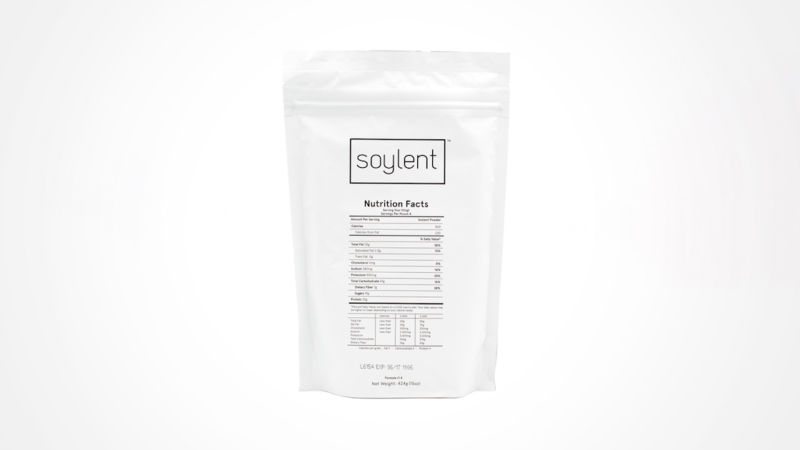
Soylent is pulling its meal-replacement powder from the market in light of trickling reports of customer illnesses. As Ars previously noted, the company already pulled its snack bars earlier this month after customers online said they suffered gastrointestinal distress, some "violent." However, in an update late Thursday, the company acknowledged that it had received a small number of similar complaints from customers who consumed the latest powder line, Soylent 1.6. The company now thinks they’re connected and that the link could finally help them identify the source of the problem.
In an online blog post Soylent said:
For the past several weeks, we have worked aggressively to uncover why people were having these negative experiences. This has included product testing, an exhaustive industry search, and discussions with many of our suppliers. Our tests all came back negative for food pathogens, toxins or outside contamination… Interestingly, we didn’t see similar complaints during the 1.5 formulation. This possible connection allows us to narrow the field considerably given there are only a few ingredients that are specific to only our bars and Powder 1.6.
Ars reached out to Soylent to ask what those ingredients are, but we haven’t received a response yet. We’ll update when we do. However, based on online ingredient listings for the three products, the likely top suspects include Whole Algal Flour, Isomaltooligosaccharide (a non-digestible, low-calorie sweetener made of short-chain carbohydrates), and a Soy Protein Isolate.
Getting To The 'Just Right' Level Of Encryption
Who is this mysterious doctor behind Trump and what does he want?

Donald Trump's rallies attract all sorts of people — including, apparently, doctors in full uniform.
At a rally in Sanford, Florida, on Tuesday, a man wearing a lab coat and a stethoscope stood behind Donald Trump at the podium. What this "doctor" was doing there, and why he was in full costume, nobody knows.
As commentators on Twitter pointed out, this doctor was actually sporting a gold stethoscope.
Who is this man? Is he a Trump-supporting emergency care surgeon who left mid-surgery to pump his fist at a rally? Or a mysterious man who just got a little too excited about his doctor costume and wanted to show it off in front of the Donald? Was he put there by the Trump campaign to strengthen his relationship with the gold encrusted doctor community? Read more...
More about Wtf, Donald Trump Election 2016, Election 2016, Watercooler, and PoliticsSenator Wants to Classify Insecure Internet of Things Devices As 'Harmful'
A massive attack carried out with a zombie army of hacked internet-connected devices caused intermittent outages on Friday, preventing tens of thousands of people from accessing popular sites such as Twitter, Reddit, and Netflix.
For many security experts, an attack like that one, which leveraged thousands of easy-to-hack Internet of Things such as DVRs and surveillance cameras—weaponized thanks to a mediocre but effective malware known as Mirai—is just a sign of things to come.
That’s why Sen. Mark Warner (D-Va.) wants the US government to do something about it.
The Senator warned of the dangers the internet is facing due to the seemingly unstoppable proliferation of Internet of Things devices in a letter he sent on Tuesday to the Federal Communications Commission, the Federal Trade Commission, and the Department of Homeland Security National Cybersecurity & Communications Integration Center (NCCIC).
Read more: When the Internet of Things Starts to Feel Like the Internet of Shit
As more “dumb devices,” as Warner described them in a phone call with Motherboard, get connected to the internet, a distributed denial of service attack like the one last week “could take our economy to a halt and also sow seeds of insecurity.”
Considering these risks, Warner is asking the FCC, the FTC and DHS a series of questions on what could possibly be done to encourage manufacturers to take security more seriously. (A company that made some of the cameras hijacked by the Mirai malware and used in the recent attacks announced a recall this week.)
“We are witnessing a ‘tragedy of the commons’ threat to the continued functioning of the internet.“
“Manufacturers today are flooding the market with cheap, insecure devices, with few market incentives to design the products with security in mind, or to provide ongoing support. And buyers seem unable to make informed decisions between products based on their competing security features, in part because there are no clear metrics,” Warner wrote in his letter to the FCC. “Because the producers of these insecure IoT devices currently are insulated from any standards requirements, market feedback, or liability concerns, I am deeply concerned that we are witnessing a ‘tragedy of the commons’ threat to the continued functioning of the internet, as the security so vital to all internet users remains the responsibility of none.”
One of Warner’s ideas is to label insecure devices as “harmful” to the internet, and perhaps allow internet service providers block them or prevent manufacturers from selling them in the US. In the interview, Warner stressed that he’s just asking questions for now, and that such a classification would probably fall under the umbrella of Net Neutrality regulations, but it’s something worth considering.

Image: Sen. Mark Warner/Instagram
“Under the Federal Communications Commission’s (FCC’s) Open Internet rules, ISPs cannot prohibit the attachment of ‘non-harmful devices’ to their networks,” Warner wrote. “It seems entirely reasonable to conclude under the present circumstances, however, that devices with certain insecure attributes could be deemed harmful to the ‘network.’”
Asked about Warner’s letter, an FCC spokesperson simply said the agency received it and it’s reviewing it.
The Senator also raised the idea of some sort of “seal of approval” or some kind of certification that will tell consumers whether the device they are about to buy is safe, or at least meets certain minimum security requirements.
Regardless of what solution is the ideal one, given that some analysts believe we might have 20 billion or even 38 billion of “things” on the internet by 2020, one thing is for sure, somebody needs to do something.
Get six of our favorite Motherboard stories every day by signing up for our newsletter.
Expedia cancels family vacation flight, posts "Fuck You" on her account page

A Los Angeles School teacher named Cara Viramontes used Expedia to book travel for an upcoming family vacation. After she used the service, Viramontes filled out the survey that Expedia sent her. In the survey, the Viramontes expressed displeasure at the Expedia agent's "unhelpful" attitude.
CBS Los Angeles has the rest of the story:
When Viramontes logged in to check her itinerary on Expedia’s website last week, she found an expletive — in bold — followed by an exclamation mark. Yes, an Expedia employee appeared to have left her a message: “Fuck You!”
What’s more, she saw that her and her family’s New Year’s travel reservation had been cancelled without their consent.
“Everyone I show, they laugh and think it’s a joke,” she said. “No one can believe a company as credible as Expedia would ever do something like this.”
“We take this matter very seriously and have opened up an investigation analyzing every click and action made by our customer service agents,” s
said Expedia in a statement. Expedia says it plans to rebook Viramontes' reservation and give her a $500 voucher.
New antibiotic mined from human gut reverses drug resistance in superbugs
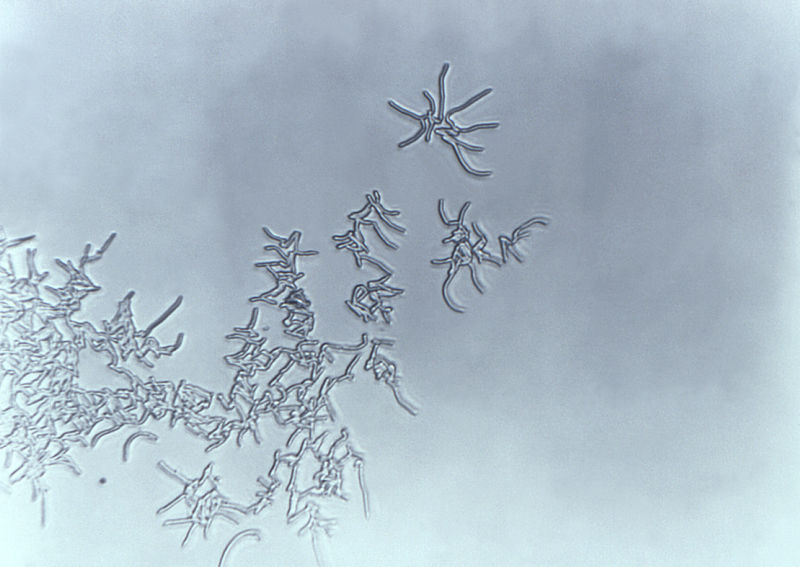
For years, scientists have been digging into dirt mounds and mud pits across the globe to uncover new antibiotics. But they may have to look no further than their own pile of poop.
The microbes bustling in our bellies may be gold mines for new antibiotic drugs, researchers report this week in Nature Chemical Biology. As proof of gut-bugs’ potential, the authors dug up a new bacteria-busting drug that can reverse resistance in pathogens and help kill off methicillin-resistant Staphylococcus aureus (MRSA) bacteria. In mice with lethal MRSA infections, the drug helped cure 100 percent of infections.
The finding shouldn’t be surprising; many of modern medicine’s most powerful antibiotics were pilfered from microbes. The tiny critters use the drugs to defend themselves from other microbes and battle for turf and resources. But, as bacteria develop resistance—creating an urgent public health crisis—scientists have been seeking new drugs to usurp. In their search, many scientists turned to sifting through exotic soils and sediments. They assumed that the molecular weaponry of bacteria closest to us had already been tapped. Yet, as more researchers delve into the complex microbial communities within us—our microbiomes—they’re finding new depths to plumb.
Waitress receives tip: God wants you to go home and cook
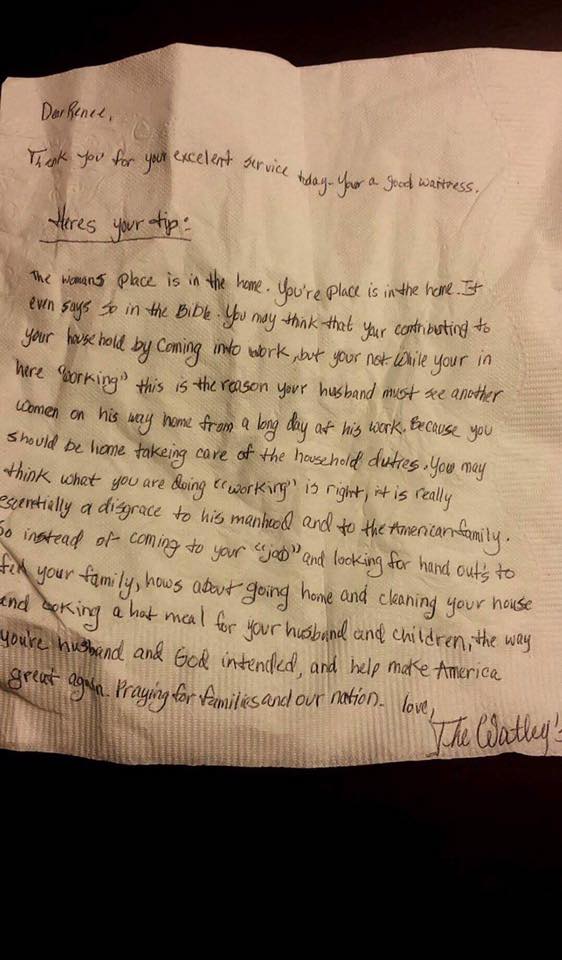
A waitress employed at a Cracker Barrel in South Carolina sent this "tip" written on a napkin that she got to The Bitchy Waitress website.
A 25-Year-Old PhD Student Created Microscopic Throwing Stars to Fight Superbugs
A powerful supervillain calls for a powerful weapon, even when you’re talking about real world enemies like antibiotic resistant bacteria.
That’s why a team of researchers has started investigating a potential new strategy for killing off resistant superbugs: microscopic throwing stars that rip the bacteria apart from inside your body.
So far, they’ve only been tested in a small animal trial, but the researchers from the University of Melbourne recently showed that these little stars—which are made of strands of proteins called peptides—were very effective at destroying antimicrobial resistant bacteria while being non-toxic to mammalian cells.
There are still a lot of questions to be answered before we start calling this the solution to antibiotic resistance, but it’s a novel approach to a problem that’s growing increasingly worrisome by the day, and could at the very least inspire some outside-the-box thinking to tackling this dire threat.
“It’s intriguing but we have a long ways to go,” said Dr. Laura Kahn, a researcher and public health expert at Princeton University. “Don’t get too excited by it yet.”
Antibiotic resistance is a natural process: eventually, bacteria develop resistance to any antibiotic. But recently that process has been drastically sped up due to our overuse of antibiotics in doctors’ offices, hospitals, and farmers’ fields. This has lead to the emergence of infectious bacteria that are resistant to multiple kinds of antibiotics, including “last resort” treatments that are rarely used because of their intense side effects.
The World Health Organization has warned that antibiotic resistance is a serious global threat, and that if we don’t take action, we could risk slipping back into a dark ages of medicine, where safe surgery is impossible and even a scraped knee could be deadly.
"It's basically like playing with Lego."
That’s why researchers—lead by a 25-year-old PhD student named Shu Lam—at Melbourne decided to test out this novel technology. The stars, called structurally nanoengineered antimicrobial peptide polymers or SNAPPs, are created by linking together chains of proteins.
“It's basically like playing with Lego,” Lam told VICE. “You have small building blocks which you assemble together, you link all of the protein units together to make a long chain, and this chain is called a polymer.”
The SNAPPs, when exposed to antibiotic-resistant bacteria, were great at tearing apart the bacteria’s outer membranes. This alone can kill the bacteria, but it also prevents the bacteria from being able to multiply. And since the SNAPPs directly target the bacteria, and actually prefer the bacteria over other cell tissue, they could potentially be more effective than antibiotics, which just wipe out any bacteria it encounters.
But Kahn warned that there are lot of hurdles this technology would need to clear before human trials should even be considered.
“All bets are off until it’s tried in people,” Kahn told me. “When you insert a nanoparticle like that into the bloodstream of a human, who knows what’s going to happen? It could destroy red blood cells, it could set off an autoimmune disorder. The efficacy is evident, it disrupts the membranes [of bacteria cells], the safety is a whole other story.”
Kahn pointed out that the safety hasn’t even really been proven in mice yet. In the research published by Lam and her colleagues this month in Nature Microbiology, the SNAPPs were tested out in the mice’s peritoneums—a sort of fatty tissue that surrounds abdomen and is susceptible to bacterial infection. Treating an infection in this scenario is different than treated an infection in the blood stream.
Kahn also questioned whether these nanoparticles could potentially pile up and create a complex in the bloodstream—something we can’t yet rule out based on this early info. She said there may be an application for this kind of treatment in a less invasive infection, such as through a topical cream to treat skin infections, but it’s too early to say.
Read more: Good News: There's A Plan to Save Us From Antibiotic Resistant Superbugs
So SNAPPs may not be our secret weapon for antibiotic resistance, after all, but at the very least this research shows that creative solutions are emerging from many scientific disciplines (Lam works in a chemistry lab, not a biology or medical lab). As stand on the edge of a terrifying, antibiotic-free future, innovative ideas are more than welcome.
Get six of our favorite Motherboard stories every day by signing up for our newsletter.
Trusting Anyone In Cycling Is A Loser's Game

It’s been 11 years since Lance Armstrong won his last Tour de France. In the intervening years, cycling has undergone a series of reforms aimed at making the sport, above all else, trustworthy. Lance Armstrong became one of the most hated athletes of all time not because he cheated, but because his pathological need to be believed led him to lie on national television, threaten the wives of his teammates, and make militantly haughty commercials for Nike. He was never sorry; his downfall didn’t come down to his doping, it was because of the lying.
NES Classic Hands-On: This Tiny Console Is 8 Bits of Awesome

Dove Straps Heart Monitors on Men to See How They React to Models, and Their Loved Ones
Imagine you're asked to assess the beauty of airbrushed photos of professional models—and then regular snapshots of your spouse, or a close family member.
A new Dove ad from Portugal does that to a group of men, sitting them down in an empty warehouse and strapping them to a heart monitor in an attempt to measure their emotional response when a screen flashing pictures of stereotypically attractive women—the kind who might grace a shampoo ad with a half-smile—suddenly gives way to pictures of wives, sisters, daughters and grandmothers.
Bikes shipped in boxes with TV set printed on box suffer less delivery damage

Dutch manufacturer Vanmoof started printing a photo of a TV set on the boxes it uses to ship bikes. Now the bikes arrive at their destination in perfect condition.
From Cycling Weekly: “No matter who was doing the shipping, too many of our bikes arrived looking like they’d been through a metal-munching combine harvester. It was getting expensive for us, and bloody annoying for our customers,” creative director Bex Rad wrote on the company’s blog. “Earlier this year our co-founder Ties had a flash of genius. Our boxes are about the same size as a (really really reaaaally massive) flatscreen television. Flatscreen televisions always arrive in perfect condition. What if we just printed a flatscreen television on the side of our boxes? “And just like that, shipping damage to our bikes dropped by 70–80%.”
[via]
You can use encrypted chat app Signal on desktop now
 Signal, the encrypted chat app powered by Open Whisper Systems, is finally available as a desktop app.
The free app, which has earned praise from Edward Snowden and security experts like Matt Green and Bruce Schneier for its tough encryption, has long been available for iPhone and Android users. (Signal’s cryptography is also used in many popular messaging apps, including Facebook… Read More
Signal, the encrypted chat app powered by Open Whisper Systems, is finally available as a desktop app.
The free app, which has earned praise from Edward Snowden and security experts like Matt Green and Bruce Schneier for its tough encryption, has long been available for iPhone and Android users. (Signal’s cryptography is also used in many popular messaging apps, including Facebook… Read MoreThis Is A Brilliant Way To Exploit The Rulebook
JvitakSneaky exploitation of a rule that will likely be changed in the offseason.

It’s well-known that a kickoff out of bounds is a penalty, with the ball placed on the 40-yard line. It’s less well-known that the ball is out of bounds if it’s touched by any player who’s out of bounds, even if the ball itself is a couple of yards from the sideline. Ty Montgomery knew it.





